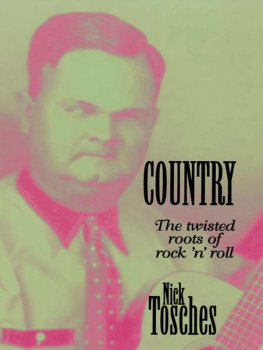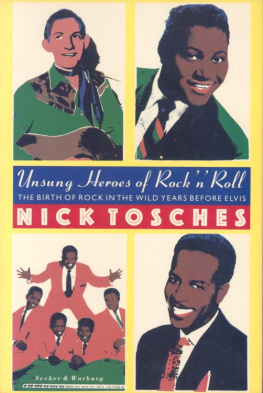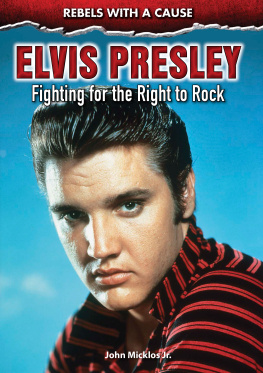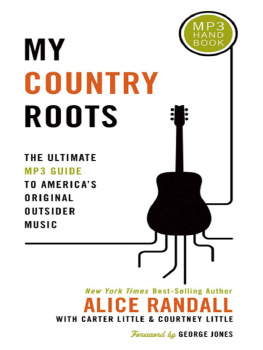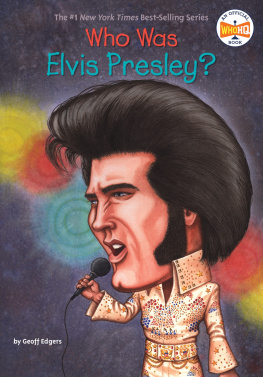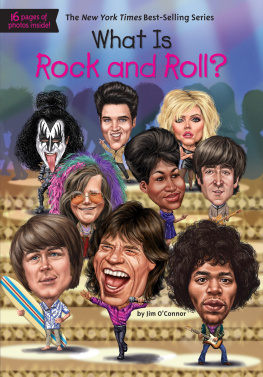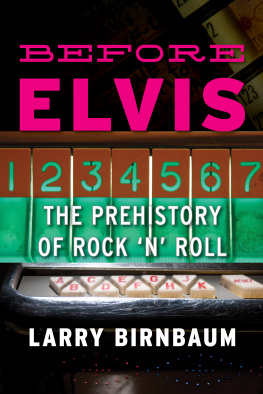PREFACE TO THE DA CAPO EDITION
This was my first book. Twenty years now have passed since I wrote it. I remember how it began, after much procrastination, doubt, and trepidation: filling a notebook not unlike the one in which I write these words, a hundred lined pages and more, with obsessive squirrelings on the long and convoluted history of the song Black Jack David. Traced from the flipside of an obscure 1956 rockabilly single back to an origin in the Orpheus myth, it was a history at least as old as that of Christianity traced back to an origin in Messianism. What intrigued me about the trail through the ages of Black Jack David was that it was wholly organic, a natural evolution, not the product of art-conscious cultivation (as, say, the trail of Odysseus from Homer to Joyce). That is, it was a trail whose source was unknown even by those who traveled it, preserved its spirit, and wrought its metamorphoses; a trail not so much merely of myth or legend or song, but of a haunting, a beguiling, that moved like a breeze through the millennia.
Obsession, and God knows what else, filled more than that notebook. There were index cards, omniana, recordings of every variant, sheaves of photocopied articles from arcane and scholarly journals. But it is the notebook I remember, and I wish I had it now, not just for what it held, but as a memento of the insane and ravenous breath at the start of what became my first book. I had no idea what I was doing, where I was going. It occurs to me now that I might have burrowed even more deeply and madly on, beyond Orpheus, back to the cuneiform dawn of history itself, to the Sumerian myth of Inannas journey to the netherworld. Surely from there I could have easily found my way to a paleolithic cave painting or two.
Some things have not changed in these twenty years. The obsessiveness is still there, the compulsion to research every fleeting detail down to its most tenuous root. I believe in the power of origins, a belief that, as Ecclesiastes put it, that which is done is that which shall be done: and there is no new thing under the sun"; that what we claim as originality and discovery are nothing but the airs and delusions of our innocence, ignorance, and arrogance; that whatever is said was said bettermore powerfully, beautifully, and purelylong ago. Homers rosy-fingered dawn is the greatest rosy-fingered dawn; Sapphos rosy-fingered moon, the same. There is no new wisdom, only new fools who find their way to the old; no new poetry, only new poets drawing breath as old as time.
But I realize now that these searches for the mouth of the Nile, this business of becoming lost in research and exploration, are also a means of escape, a way in which to evade and put off the work of writing. I follow endless trails; am drawn to the Sub-Sub-Librarian, Melvilles alter ego, as much as to Melville himself. (And in the end was Melvilles fateto live out his last years in impecunious anonymity as a customs inspectorany less dire than that of the grub-worm of a poor devil of a Sub-Sub?) As for the lost notebook, I still throw away all too much and always feel that I will never know the regret that inevitably follows.
So, Country. Its a strange and data-laden work of which Im somewhat proud and somewhat ashamed. Proud because I pulled it off, wrote it, did it, and because its been so well received and regarded through the years. Ashamed because I wrote it before I could really write, and when I look into it now, glancing sideways and fleetingly, what I see are its callow temerity, arch tonalities, and precious turns of phrase. (I mention these with some hesitation, lest the impressionable be induced to see them as well, or to fancy seeing them, where none was seen before.) But I havent here sought to alter these offending flourishes; theyre part of this book, and to do so would be dishonest and ruinous to the nature of a work that wouldnt have been undertaken by any other than one who couldnt yet quite write.
Factual amendment has been forgone as well, but for a different reason: this edition has been set directly from the previous, revised edition, and to have added anything to the existing text would have resulted in an ugly page of light and dark print, first-generation and second-generation type. I have, however, appended a further look at Emmett Miller, whose mystery lies at the heart of two chapters. Those seeking new light on other matters herein, or intrigued in general by this book, would be well served by subscribing to The Journal of Country Music. (Much of the new Miller material appeared there, in 1995, as The Strange and Hermetical Case of Emmett Miller.) The Journal is published by the Country Music Foundation, 4 Music Square East, Nashville, Tennessee 37203. Those deeply interested in post-war honky-tonk and related music are further referred to an eccentric little publication called The Hillbilly Researcher, 20 Silkstream Road, Burnt Oak, Edgware, Middlesex HA8 ODA, England. I also recommend, in some respects more enthusiastically than I do Country, its companion volume, Unsung Heroes of Rock V Roll, which I wrote some years later. As for the music itself, much of it has now been, and continues to be, reissued on compact disc. A good source is Roots & Rhythm, Post Office Box 837, El Cerrito, California 94530.
Over the years, I have been approached for information of another sort, regarding the chapters entitled The Girl Singer and Northeast Mississippi, 1953. I will take this opportunity to say only that these little tales are truth masquerading as fiction masquerading as truth.
In the preface to the revised edition, which here follows, I reminisced about the writing of this book. One memory, lost to me then, occurs to me now. As I submitted it, the book was reckoned not long enough. With much resentmentId felt, after all, that I was finally done and freeI set about writing an additional chapter, whose surly title, Cowboys and Niggers (the title is that of a recording discussed in the chapter) was indicative of my mood. Now I see this reluctantly written chapter, regarding the miscegenation of black and white in American music, as one of the best parts of the book. Though there was much illustrative music of which I was yet unaware when I wrote itthe Ravens covering Hank Williams, Ernest Tubb covering Chuck Berry, and so onit succeeds, I think, in presenting and investigating that search for ultimate sources, and the dilemma and delusion of originality, that inspired the books first breath.

